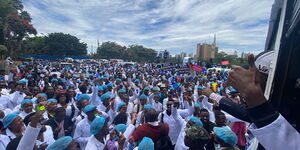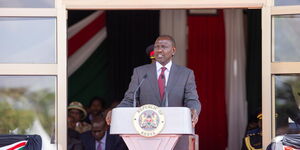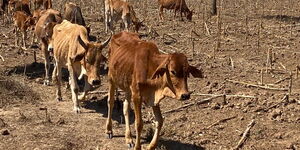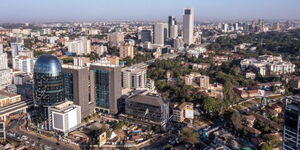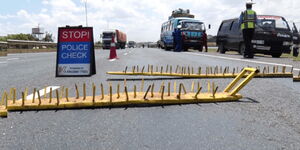The Police Reform Working Group (PRWG), which constitutes 23 organizations, now calls on accountability for human rights violations committed by police officers during the anti-government protests even as the country gears up to get a new Inspector General of Police.
In a joint press statement released on Wednesday, the working group decried the lack of accountability on the atrocities meted out on unarmed Kenyans who took to the streets to protest.
"Accountability for human rights violations committed by police officers. The lack of accountability and the belief that their superiors will protect them emboldens police officers to use unlawful force against protesters and members of the public."
The working group slammed the government for being inconsiderate in the recruitment of the Inspector General of Police, they have urged the state to consider a civilian who they believe will uphold integrity and deliver efficiently.
"In line with these key qualifications, we urge the President to strongly also consider competitively appointing a civilian to head the National Police Service."
The Police Reforms Working Group acknowledged the resignation of the Inspector General of the National Police Service, Japhet Koome, amid several cases of deaths, serious injuries, and abductions in the context of the protests that began as Anti-Finance Bill protests.
These protests were marked by several cases of human rights violations by the National Police Service (NPS), including extra-judicial killings, abductions, torture and other ill-treatment, and arbitrary arrests.
Section 12 of the National Police Act mandates the NPSC to competitively advertise, shortlist, interview, and recruit the Inspector General following parliamentary vetting.
However, the 2014 Security Laws Amendment Act altered this process, giving the President sole authority to nominate the IG for parliamentary vetting, bypassing the NPSC.
The amendments also changed the procedure for the removal of the IG-NPS, leaving the President with little power in law to remove the Inspector-General from office, this according to the working group continues to undermine the independence of the police service.
"This change continues to undermine police independence, accountability, and the spirit of the constitution. It has fueled widespread and systemic police corruption, extortion, criminality, widespread human rights violations, and lack of public accountability."
In November 2022, the working group submitted a detailed memorandum opposing the appointment of Former IG Japhet Koome, citing concerns about his integrity and accountability as Nairobi County Commander.
They allege that these concerns were ignored during recruitment and Parliament proceeded to appoint him.
As the process of appointing the next Police Inspector General begins, the working group has urged the Office of the Director of Public Prosecutions (ODPP), the Director of Criminal Investigations (DCI), and the Independent Policing Oversight Authority (IPOA) to urgently investigate and prosecute police officers and their commanders who have violated Kenyans' rights during the ongoing protests.




